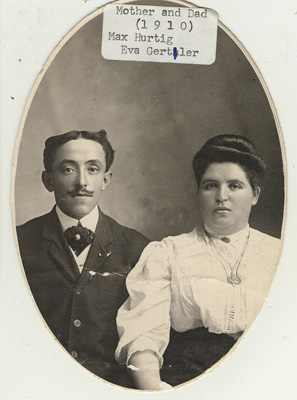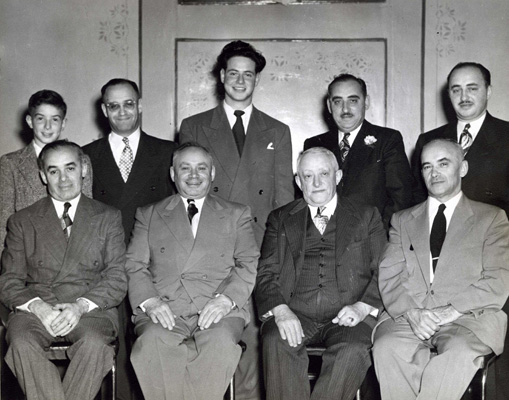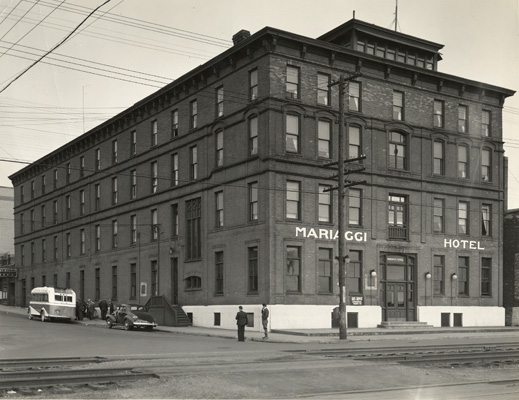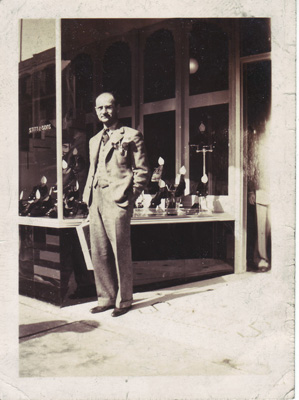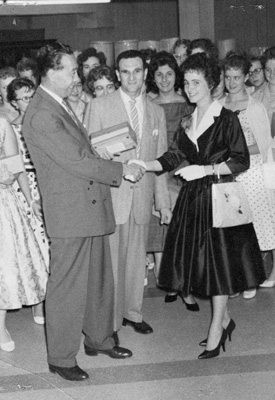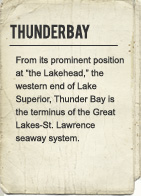Employment and Business
While many of the first Jewish settlers in Fort William and Port Arthur worked initially as labourers, scrap metal collectors or for the railway business, others soon established small shops which were gradually expanded or improved into mainstays of the local economy. Common occupations for Jewish families at the turn of the 20th century included grocers, tailors, cobblers, furriers and second-hand vendors. Meat and grocery shops, such as those belonging to Michael Slobodsky and Abe Bass, got their early foothold by supplying kosher produce to the largely Orthodox community.
By the 1930s there was a large Jewish retail presence on Simpson Street in Fort William, which included stores such as Stitt and Sons Clothing, Lefton’s Men’s Wear and Sherman’s Clothing. The Laskins, Tooles, Gilberts and Shoomans all ran furniture stores and several prominent families owned fur stores. In Port Arthur, the main thoroughfare around Cumberland Street, Court Street and Arthur Street (now called Red River Road) also exhibited a significant Jewish presence. The Hurtig family started a small hotel empire with the Mariaggi and Pigeon River hotels. Murray’s Bar and Grill on Cumberland Street in Port Arthur, owned by Murray and Dorothy “Dot” Steiman, was a longstanding social hub, known for hosting after hours crap games on the lower level in the 1930s and 1940s.
As in other parts of the country, the “Dirty Thirties” were a time of austerity in Fort William and Port Arthur. For young people, opportunity lay outside of the city. The Fort William Collegiate and Technical Institute was only built in 1925 and Ontario statistics in 1948 indicate that only 20 percent of the Ontario population had graduated from grade 12. Many Jewish families, putting an emphasis on education, encouraged their children to seek out further opportunities in larger cities, where a disproportionately high number of Jewish students graduated from university and professional programmes. There was some renewal of the manufacturing sector in Fort William and Port Arthur during the Second World War. After the war, a new generation of Jewish professionals returned in smaller numbers from their studies in Toronto and Winnipeg to begin their careers as lawyers, doctors and dentists in the community where they had grown up and where their families continued to run local shops and businesses. Some members of the second or even third generation also stayed on to take over the family businesses that had been established by their parents and grandparents in the first quarter of the 20th century.
Late Night Business
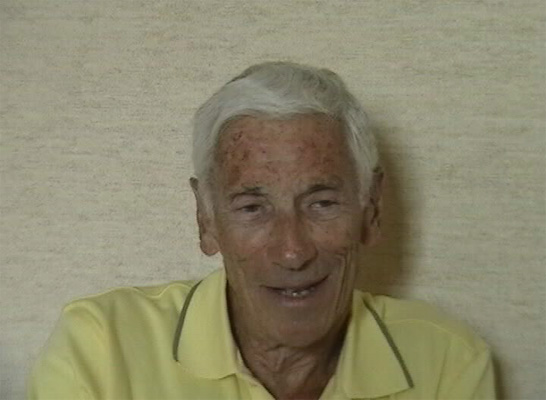
Jerry Stitt shares his memories of how his father and grandfather kept their clothing store open late during the Depression.
Interview with Jerry Stitt, 18 July 2007
Sharon Gubbay Helfer, OJA, Oral History #308.
Click here to watch the video